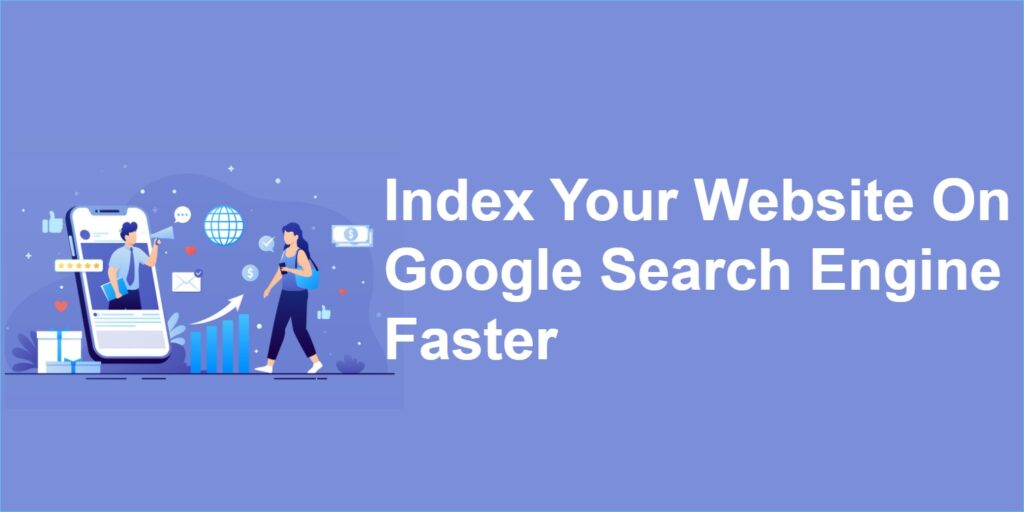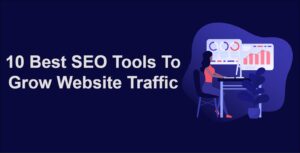Having a website, like ‘How To Index A Website On Google Search Engine,’ is just the first step in the vast internet landscape. To make your web presence worthwhile, you must ensure that your website is indexed by search engines, and Google, the most prominent one, is usually the primary focus.
Indexing your website on the Google Search Engine is essential for online visibility and business success. By following the steps outlined in this guide and monitoring your website’s performance through the Google Search Console, you can ensure your site is discoverable to your target audience.
This comprehensive guide will walk you through indexing your website on the Google Search Engine.
What is Website Indexing?
Website indexing is the process by which search engines like Google crawl and store the content of your website in their database. When your website is indexed, it becomes searchable in search engine results, making it discoverable by users.
Why is Website Indexing Important?
Website indexing is crucial because it determines whether your website will appear in search results. Without indexing, your website remains hidden from potential visitors, impacting your online visibility and, subsequently, your traffic and business success.
Benefits of Indexing a Website on Google
Indexing a website on Google is a crucial process that significantly impacts its visibility and performance in search engine results. Here are the key benefits of having your website indexed:
1. Increased Visibility
- Explanation: Indexing allows your website to appear in Google’s search results. If your site is not indexed, it cannot be found by users searching for relevant keywords.
- Benefit: This leads to increased organic traffic as users can discover your site when they search for terms related to your content or services
2. Faster Updates and Changes
- Explanation: When you update content or add new pages, indexing ensures that these changes are reflected in search results quickly.
- Benefit: Faster indexing means that fresh content can rank sooner, which is particularly beneficial for time-sensitive topics like news articles or trending subjects
3. Improved User Experience
- Explanation: Quick indexing enhances user experience by making relevant content readily available to users.
- Benefit: When users can find what they are looking for easily, it increases engagement and satisfaction, which can positively influence your site’s rankings over time
4. Better Crawl Budget Utilization
- Explanation: The crawl budget refers to the number of pages Googlebot crawls on your site within a specific timeframe. Efficient indexing helps optimize this budget.
- Benefit: A well-indexed site ensures that important pages are crawled and indexed regularly, which is essential for maintaining SEO performance
5. Higher Site Authority
- Explanation: Regular updates and quick indexing signal to Google that your site is active and relevant.
- Benefit: This can lead to increased site authority, resulting in better rankings across all pages as Google recognizes your site as a valuable resource
6. Competitive Advantage
- Explanation: Having a faster indexing speed can give you an edge over competitors who may not prioritize this aspect of SEO.
- Benefit: With quicker rankings and increased visibility, you can attract more organic traffic and generate leads more efficiently than competitors with slower indexing
Indexing is a foundational aspect of SEO that directly affects how well your website performs in search results. By ensuring that your site is indexed promptly and efficiently, you can enhance visibility, improve user experience, optimize crawl budgets, increase authority, and gain a competitive advantage in your industry. Taking proactive steps to manage indexing through tools like Google Search Console can lead to significant long-term benefits for your online presence.
Steps to Index Your Website on Google
Now, let’s dive into the steps you must follow to ensure your website is properly indexed by Google.
1. Create and Verify a Google Search Console Account
The Google Search Console is a free tool that helps you monitor and maintain your site’s presence on Google Search. Create an account and verify your website to get started.
2. Submit a Sitemap
A sitemap is a file that lists all the pages on your website. Submitting a sitemap to Google helps them understand your site’s structure. Use the Search Console to add and verify your sitemap.
3. Robots.txt File
Check your website’s robots.txt file. It tells search engines which parts of your site should not be crawled or indexed. Ensure that your essential pages are not blocked by the robots.txt file.
4. High-Quality Content
Google values high-quality, original content. Create valuable and engaging content that attracts both users and search engines.
5. Internal Linking
Use internal linking to connect your website’s pages. It helps Google discover new pages and understand the hierarchy of your site.
6. Backlinks
Quality backlinks from reputable websites can improve your website’s credibility and make it more appealing to Google.
7. Mobile Optimization
Ensure your website is mobile-friendly. Google prioritizes mobile-friendly websites in its search results.
8. Page Speed and Performance
Fast-loading websites are favored by Google. Optimize your site’s speed and performance for better indexing.
9. Secure Your Website (HTTPS)
Google prefers secure websites. Use HTTPS to protect data and gain a small ranking boost.
10. Regular Updates
Keep your website up to date with fresh content and regular maintenance. This shows Google that your site is active and relevant.
11. Monitor Indexing Status
Periodically check the Google Search Console to monitor your website’s indexing status. Address any issues or errors promptly.
How to fix google page indexing issues
Addressing these key areas can resolve common Google page indexing issues and improve your website’s visibility in search results.
Noindex Tags and Meta Robots Directives:
Check for “noindex” meta tags or robot directives in your website’s code that prevent indexing. Remove these directives to allow Google to index your pages.
Robots.txt File:
Review your website’s robots.txt file to disallow rules that block Googlebot’s access to specific pages. Adjust the robots.txt file to allow indexing of essential pages.
Crawl Errors Resolution:
Address crawl errors in Google Search Console. These errors, such as 404 pages or server issues, can prevent indexing. Identify and resolve these issues promptly.
Duplicate Content:
Resolve duplicate content issues, which can confuse search engines. Use canonical tags to specify the preferred version of a page when you have similar content on multiple pages.
Mobile-Friendly Design:
Ensure your website is mobile-friendly to meet Google’s mobile-first indexing criteria. Use Google’s Mobile-Friendly Test to identify and address mobile issues.
Page Speed and Performance Optimization:
Optimize your website’s performance to ensure fast loading times. Slow-loading pages can hinder indexing. Use tools like Google PageSpeed Insights for performance recommendations.
Troubleshooting Website Indexing Issues
Here’s a comprehensive guide on troubleshooting website indexing issues based on the provided search results:
Troubleshooting Website Indexing Issues
Indexing issues can significantly impact your website’s visibility in search engine results. Here are common causes and solutions to help you troubleshoot these problems effectively.
Common Causes of Indexing Issues
Duplicate Content
Issue: Pages with duplicate content may not be indexed properly.
Solution: Use canonical tags to indicate the preferred version of a page or remove duplicate content altogether.
Thin Content
Issue: Pages with insufficient content may be deemed unworthy of indexing.
Solution: Enhance the content quality by providing more valuable information, ensuring it thoroughly covers the topic.
Blocked by Robots.txt
Issue: If your robots.txt file blocks Googlebot from crawling certain pages, those pages won’t be indexed.
Solution: Review your robots.txt file and ensure that it allows crawling for important pages. Use the robots.txt Tester in Google Search Console to verify settings.
Redirect Errors
Issue: Improperly set up redirects can prevent pages from being indexed.
Solution: Check for redirect chains or loops and ensure that all redirects lead to valid URLs without excessive steps.
Crawl Budget Exceeded
Issue: Larger sites may exceed their crawl budget, leading to some pages not being crawled or indexed.
Solution: Optimize your site by removing unnecessary pages, consolidating thin content, and ensuring that important pages are easily accessible.
Orphaned Pages
Issue: Pages that are not linked from anywhere else on your site (orphaned pages) may not be discovered by Google.
Solution: Implement an internal linking strategy to connect orphaned pages with other relevant content on your site.
404 and 5xx Errors
Issue: Server errors (5xx) or not found errors (404) can hinder indexing.
Solution: Regularly check for these errors in Google Search Console and fix them by correcting broken links or resolving server issues.
Noindex Tags
Issue: Pages marked with a “noindex” tag will not be indexed by Google.
Solution: If you want a page indexed, remove the noindex tag from the HTML code.
Pending Status
Issue: New pages may show a pending status if they have not yet been crawled.
Solution: Submit the URL for indexing through Google Search Console to expedite the process.
Rendering Issues
Issue: Problems with JavaScript or CSS can prevent Googlebot from properly rendering and indexing a page.
Solution: Test how Googlebot sees your page using the URL Inspection Tool in Google Search Console, and fix any rendering issues identified.
Steps to Troubleshoot Indexing Issues
- Check Google Search Console
- Navigate to the “Coverage” report to identify any errors or warnings related to indexing.
- Use the URL Inspection Tool
- Enter specific URLs to check their indexing status and see any errors preventing indexing.
- Submit an Updated Sitemap
- Ensure that your sitemap is up-to-date and includes all relevant pages you want indexed. Submit it through Google Search Console.
- Fetch as Google
- Use the “URL Inspection” feature to fetch specific pages and request indexing if necessary.
- Monitor Changes
- After making adjustments, monitor your site’s performance in Google Search Console for any improvements in indexing status.
Troubleshooting website indexing issues involves identifying common problems such as duplicate content, crawl budget limitations, and technical errors like redirects or server issues. By systematically addressing these issues using tools like Google Search Console and following best practices, you can improve your site’s chances of being indexed effectively, ultimately enhancing its visibility in search results.
How Indexing in Google Helped Increase Website Traffic: Case Studies
Here are three case studies demonstrating how indexing in Google helped increase website traffic:
Case Study 1: Escape the Room
Overview: Escape the Room, a live game and entertainment company, faced challenges in maintaining a strong digital footprint across multiple locations.
Strategies Implemented:
- The company optimized its website for indexing by focusing on relevant keywords and creating high-quality content tailored to their audience.
- They improved their site structure and internal linking to facilitate better crawling and indexing by Google.
Results:
- After implementing these strategies, Escape the Room experienced a 43% increase in organic traffic to their job listing pages.
- The strategic focus on indexing led to a 71% increase in entrances from organic searches, significantly enhancing visibility and engagement with potential customers.
Case Study 2: Happy Ears Hearing Center
Overview: Happy Ears Hearing Center aimed to capture local audiences and establish itself as an industry expert in hearing healthcare.
Strategies Implemented:
- The center enhanced its website’s user experience, which improved indexing efficiency. This included optimizing page load speeds and ensuring mobile-friendliness.
- They expanded their keyword targets and produced content that addressed common questions related to hearing health.
Results:
- The efforts resulted in a 396% increase in organic traffic over a defined period.
- The improvements in indexing speed and content relevance led to a 245% increase in total organic keyword rankings, driving more visitors to their site.
Case Study 3: Tech Startup
Overview: A tech startup struggled with low visibility due to a lack of indexed pages and low domain authority.
Strategies Implemented:
- The startup executed a strategic guest blogging campaign on high-authority technology blogs, which included backlinks to their site.
- They focused on creating valuable content that resonated with the target audience, ensuring that each post was optimized for quick indexing by Google.
Results:
- Within six months, the startup saw a 50% boost in traffic from host blogs due to improved indexing of their backlinks.
- Their domain authority increased by 30%, leading to several targeted keywords ranking on Google’s first page, which further enhanced organic traffic.
These case studies illustrate the significant impact of effective indexing on increasing website traffic. By optimizing content for quick indexing, improving user experience, and leveraging high-quality backlinks, these businesses successfully enhanced their visibility in search results, leading to substantial growth in organic traffic.





